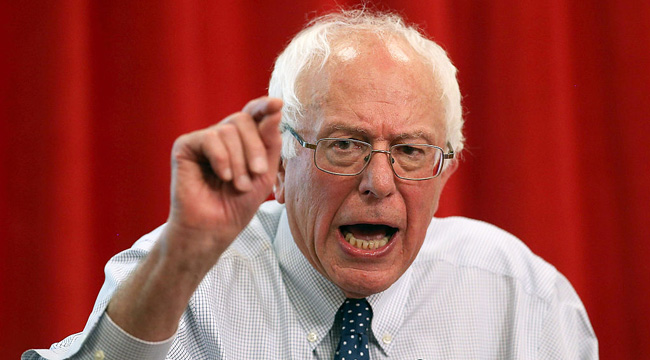
Last week, Bernie Sanders was suffering the effects of yet another crushing Tuesday election that left him seeking a new strategy. So he laid off staffers in order to pool resources in California. He then made a frank announcement in an effort to mitigate the damage, but of course, this looks like bad news no matter how it’s painted. We can read his position positively or negatively, but this is an endgame with only a few pieces left on the nation’s chess board. The Bern’s own statements make it seem like he’s hoping to leave lasting effects on the Democratic Party. Whether he does this by winning or losing, he wants to shift the party to the left.
If current trends continue, Hillary Clinton will presumably rise victorious with the help of hundreds of superdelegates, who all promised their allegiance before the first debate. There are 2,382 delegates needed to secure the Democratic nomination. Currently, Clinton has 1,645 (plus 520 superdelegates) pledged while Sanders has 1,318 (plus 39 superdelegates). No wonder Sanders is upset. Without those superdelegates, he’d be so much closer to winning, even if Clinton delights in pointing out that she’s gathered up more votes than him. The DNC chairperson said the party is not c*ckblocking Sanders because superdelegates are a party tradition. Well, many people think they’re not democratic because they don’t represent the will of the people.
On Sunday, Sanders held a press conference to say he’s not leaving the race. Yes, he’s rationing resources and has been facing the music of not winning enough delegates, but he’s also vowing a contested convention. He hinted at this a month ago, but now he means business. Why? Because as it stands, Clinton probably cannot secure the nomination on pledged delegates — those that are fixed by primary votes — alone. The Bern’s pretty angry about the prospect of losing this way, and he refuses to back down:
“She will need super delegates to take her over the top of the convention in Philadelphia. In other words, the convention will be a contested contest. “If I win a state with 70 percent of the votes you know what, I think I’m entitled to those super delegates. I think that the super delegates should reflect what the people in the state want.”
The gauntlet is duly thrown. Of course, Sanders knows he must deliver big time to possibly sway superdelegates to take his side. He has to win 65 percent of the remaining state delegates to make such a compelling case. And the Bern knows it won’t even be close to an easy feat:
“That is admittedly, and I do not deny it for a second, a tough road to climb, but it is not an impossible road to climb and we intend to fight for every vote in front of us and every delegate remaining.”
Well, stranger victories have happened when it comes to unorthodox nomination processes. Both Franklin D. Roosevelt and Woodrow Wilson won their respective Democratic nominations through contested conventions, and then they both won general elections. Roosevelt did so in 1932 after four ballots, and Wilson holds the record of requiring 46 ballots to take the nomination before going on to secure the presidency. So sure, it’s possible for Sanders to become the eventual Democratic nominee, but he’s gonna have to landslide in several states, including California. Aaand if the GOP continues its own train wreck, there could be a contested convention on that side as well.
Here’s the full Sanders press conference. The full video is nearly a half-hour long, but he gets to the point fairly quickly.
https://youtu.be/035I6c3PuGI
(Via Real Clear Politics and ABC News)
